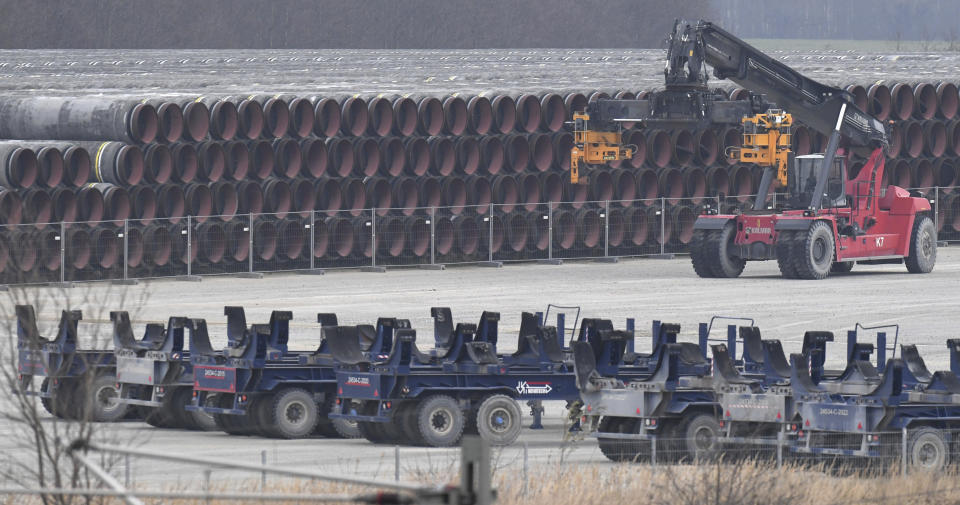Russian ships move to resume Baltic pipeline construction
MOSCOW (AP) — A Russian pipe-laying ship sailed into position Saturday to resume construction of a German-Russian gas pipeline in the Baltic Sea that the United States has vehemently opposed.
The Akademik Cherskiy vessel reached the area off the coast of Poland where a section of the Nord Stream 2 pipeline remains uncompleted, according to ship monitoring data. Another Russian pipe-laying ship, Fortuna, sailed off from the German port of Wismar, apparently heading to a different location where another pipeline section is to be built.
The maneuvers followed Russia pledging to complete the pipeline despite the threat of U.S. sanctions.
Russia's state-controlled natural gas company Gazprom has moved to finish construction of the multibillion Baltic Sea pipeline with its own resources after a Swiss company doing the building work at sea opted out of the project a year ago under the threat of U.S. sanctions.
Gazprom had to send the Akademik Cherskiy on a long voyage from the port of Nakhodka on Russia's Pacific coast to the Baltics. The vessel has been moving between various Baltic ports since May as the Nord Stream 2 construction plans were thrown into uncertainty by the sanctions threat.
The U.S. has argued that the Nord Stream 2 would erode European energy security at a time when Russia-West relations have sank to post-Cold War lows due to crises such as Moscow's 2014 annexation of Ukraine's Crimea.
The Kremlin has countered by accusing Washington of trying to derail the project in a bid to force European customers to purchase U.S. liquefied natural gas instead of the cheaper Russian natural gas.

 Yahoo Finance
Yahoo Finance 

